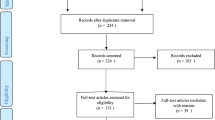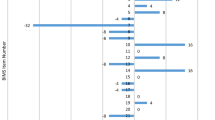Abstract
Vocational educators urgently need to keep learning throughout their careers. However, traditional professional development (PD), such as courses and workshops, yields limited transfer to the workplace as it does not align with how professionals naturally learn at work. The study discussed here reports on professional learning of vocational educators within one institute for technical vocational education in Western Canada. Seven instructors and five program chairs from five different programs were interviewed regarding professional learning in their departments, the extent to which this learning was enhanced through the implementation of an ePortfolio approach, and factors that contributed to or inhibited this learning. Our analysis shows that the ePortfolio approach increased some professional learning activities including goalsetting, documenting growth, discussions with peers, and reflection. Cross-case analysis illustrates that professional learning is embedded in professional practices and cannot be understood by examining individual factors separately from departmental environments. Based on our study, we can draw three conclusions: i) the interaction between the cultures in the original trade/profession and the vocational educational department is unique to the vocational education context and should be further explored, ii) the role of program chairs in vocational education is of crucial importance to instructor professional learning, and iii) our findings indicate that instructor professional learning practices are not static and can and should be improved. Further studies into and experiments with comprehensive approaches to supporting professional learning of vocational educators are necessary and long overdue.
Similar content being viewed by others
Notes
In this paper, the term ‘instructor’ refers to someone who teaches in post-secondary vocational education.
To protect the identity of the research participants, each participant has been provided with a gender-neutral pseudonym.
References
Amundsen, C., & Wilson, M. (2012). Are we asking the right questions? A conceptual review of the educational development literature in higher education. Review of Educational Research, 82(1), 90–126.
Atkinson, D. J., & Bolt, S. (2010). Using teaching observations to reflect upon and improve teaching practice in higher education. Journal of the Scholarship of Teaching and Learning, 10(3), 1–19.
Baert, H., & Govaerts, N. (2012). Learning patterns of teams at the workplace. Journal of Workplace Learning, 24(7/8), 538–550.
Baert, H., De Rick, K., & Van Valckenborgh, K. (2006). Towards the conceptualisation of ‘learning climate’. In R. V. de Castro, A. V. Sancho, & P. Guimaraes (Eds.), Adult education: New routes in a new landscape. Braga: University of Minho.
Baldwin, T. T., & Ford, J. K. (1988). Transfer of training: a review and directions for future research. Personnel Psychology, 41(1), 63–105.
Beausaert, S. A. J., Segers, M. S. R., & Gijselaers, W. H. (2011). Using a personal development plan for different purposes: its influence on undertaking learning activities and job performance. Vocations and Learning, 4, 231–252.
Billett, S. (2002). Critiquing workplace learning discourses: participation and continuity at work. Studies in the Education of Adults, 34, 56–68.
Billett, S. (2011). Subjectivity, self and personal agency in learning through and for work. In M. Malloch, L. Cairns, K. Evans, & B. N. O’Connor (Eds.), The SAGE handbook of workplace learning (pp. 60–72). Los Angeles: Sage.
Blume, B. D., Ford, J. K., Baldwin, T. T., & Huang, J. L. (2010). Transfer of training: a meta-analytic review. Journal of Management, 36, 1065–1105. doi:10.1177/0149206309352880.
Bound, H. (2011). Vocational education and training teacher professional development: tensions and context. Studies in Continuing Education, 33(2), 107–119. doi:10.1080/0158037X.2011.554176.
Clarke, D., & Hollingsworth, H. (2002). Elaborating a model of teacher professional growth. Teaching and Teacher Education, 18, 947–967. doi:10.1016/S0742-051X(02)0005307.
Cox, M. D., & Richlin, L. (Eds.). (2004). Building faculty learning communities: New directions for teaching and learning, number 97. San Francisco: Jossey-Bass.
Cross, K. P., & Steadman, M. H. (1996). Classroom research: Implementing the scholarship of teaching. San Francisco: Jossey-Bass.
Darwin, S. (2007). The changing contexts of vocational education: implications for institutional vocational learning. International Journal of Training and Research, 5(1), 55–71.
Day, C. (1999). Developing teachers: The challenges of lifelong learning. London: Falmer Press.
Engeström, Y. (2011). Activity theory and learning at work. In M. Malloch, L. Cairns, K. Evans, & B. N. O’Connor (Eds.), The SAGE handbook of workplace learning (pp. 86–104). Los Angeles: Sage.
Eraut, M. (2004). Informal learning in the workplace. Studies in Continuing Education, 26(2), 247–273. doi:10.1080/158037042000225245.
Fletcher, F., & Roberts, C. (2008). Managing the chair’s paradoxical role. The Department Chair: A Resource of Academic Administrators, 19(2), 11–12.
Fuller, A., & Unwin, L. (2011). Workplace learning and the organization. In M. Malloch, L. Cairns, K. Evans, & B. N. O’Connor (Eds.), The SAGE handbook of workplace learning (pp. 46–59). SAGE: Los Angeles.
Goliath, C. L. (2009). Diffusion of an e-Portfolio to assist in the self-directed learning of physicians: An exploratory study. Dissertation. University of Akron.
Guba, E. G., & Lincoln, Y. S. (1998). Competing paradigms in qualitative research. In N. K. Denzin & Y. S. Lincoln (Eds.), The landscape of qualitative research: Theories and issues (pp. 195–220). Thousand Oaks: Sage Publications.
Hager, P. (2005). Current theories of workplace learning: A critical assessment. In N. Bascia, A. Cumning, A. Datnow, K. Leithwood, & D. Livingstone (Eds.), International handbook of educational policy (pp. 829–847). Berlin/ Dordrecht/New York: Springer.
Hallonen, J. S., & Ellenberg, G. B. (2006). Teaching evaluation follies: Misperception and misbehavior in student evaluation of teachers. In P. Seldin (Ed.), Evaluating faculty performance: A practical guide to assessing teaching, research, and service (pp. 150–165). San Francisco: Jossey-Bass.
Hodkinson, H., & Hodkinson, P. (2005). Improving schoolteachers’ workplace learning. Research Papers in Education, 20, 109–131.
Hoekstra, A., & Crocker, J. R. (2015). Design, implementation, and evaluation of an ePortfolio approach to support faculty development in vocational education. Studies in Educational Evaluation. doi:10.1016/j.stueduc.2015.03.007.
Hoekstra, A., & Korthagen, F. (2011). Teacher learning in a context of educational change: informal learning versus systematically supported learning. Journal of Teacher Education, 62(1), 76–92.
Hoekstra, A., Beijaard, D., Brekelmans, J. M. G., & Korthagen, F. A. J. (2007). Experienced teachers’ informal learning from classroom teaching. Teachers and Teaching: Theory and Practice, 13(2), 189–206.
Hoekstra, A., Brekelmans, M., Beijaard, D., & Korthagen, F. (2009a). Experienced teachers’ informal learning: learning activities and changes in behaviour and cognition. Teaching and Teacher Education, 25(5), 663–673.
Hoekstra, A., Korthagen, F., Brekelmans, M., Beijaard, D., & Imants, J. (2009b). Experienced teachers’ informal workplace learning and perceptions of workplace conditions. Journal of Workplace Learning, 21(4), 276–298.
Hubball, H. T., Pratt, D. D., & Collins, J. B. (2005). Enhancing reflective teaching practices: implications for faculty development. The Canadian Journal of Higher Education, 35(3), 57–81.
Imants, J., Wubbels, T., & Vermunt, J. D. (2013). Teachers’ enactment of workplace conditions and their beliefs and attitudes toward reform. Vocations and Learning, 6, 323–346.
Kwakman, C. H. E. (2003). Factors affecting teachers’ participation in professional learning activities. Teaching and Teacher Education, 19, 149–170. doi:10.1016/S0742-051X(02)00101-4.
Kyndt, E., & Baert, H. (2013). Antecedents of employees’ involvement in work-related learning: a systematic review. Review of Educational Research, 83(2), 273–313.
Lamont, M. (2007). What are the features of e-portfolio implementation that can enhance learning and promote self-regulation? Maastricht: Paper presented at the European Institute for E-Learning (EIfEL) conference.
Lancaster, S., Di Milia, L., & Cameron, R. (2012). Supervisor behaviours that facilitate training transfer. Journal of Workplace Learning, 25(1), 6–22.
Lave, J., & Wenger, E. (1991). Situated learning: Legitimate peripheral participation. Cambridge: Cambridge University Press.
Lincoln, Y. S., Lynham, S. A., & Guba, E. G. (2011). Paradigmatic controversies, contradictions, and emerging confluences, revisited. In N. K. Denzin & Y. S. Lincoln (Eds.), The SAGE handbook of qualitative research (pp. 97–128). Thousand Oaks: Sage Publications.
Lohman, M. C., & Woolf, N. H. (2001). Self-initiated learning activities of experienced public school teachers: methods, sources, and relevant organizational influences. Teachers and Teaching: Theory and Practice, 7, 59–74.
Mansvelder-Longayroux, D. D., Beijaard, D., & Verloop, N. (2007). The portfolio as a tool for stimulating reflection by student teachers. Teaching and Teacher Education, 23(1), 47–62.
Marsick, V. J., & Watkins, K. E. (1990). Informal and incidental learning in the workplace. London/New York: Routledge.
Marsico, G. (2012). The double uncertainty: trajectories and professional identity in changing contexts. Culture and Psychology, 18(1), 121–132.
Meirink, J. A., Meijer, P. C., Verloop, N., & Bergen, T. C. M. (2009). Understanding teacher learning in secondary education: the relations of teacher activities to changed beliefs about teaching and learning. Teaching and Teacher Education, 25(1), 89–100.
Miles, M. B., & Huberman, M. (1994). Qualitative data analysis: An expanded sourcebook. Thousand Oaks: SAGE Publications.
Murray, J. P. (1997). Successful faculty development and evaluation: The complete teaching portfolio. Washington: Graduate School of Education and Human Development, The George Washington University. ERIC Document Reproduction Service No. ED405759.
Opfer, V. D., & Pedder, D. (2011). Conceptualizing teacher professional learning. Review of Educational Research, 81(3), 376–407.
Pallett, W. (2006). Uses and abuses of student ratings. In P. Seldin (Ed.), Evaluating faculty performance: A practical guide to assessing teaching, research, and service (pp. 50–65). San Francisco: Jossey-Bass.
Sambrook, S. (2005). Factors influencing the context and process of work-related learning: synthesizing findings from two research projects. Human Resource Development International, 8(1), 101–119.
Schön, D. (1983). The reflective practitioner: How professionals think in action. New York: Basic Books.
Shuell, T. J. (1986). Cognitive conceptions of learning. Review of Educational Research, 56, 411–436.
Stes, A., Min-Leliveld, M., Gijbels, D., & Van Petegem, P. (2010). The impact of instructional development in higher education: the state-of-the-art of the research. Educational Research Review, 5(1), 25–49.
Stiehl, R., & Lewchuk, L. (2008). The outcomes primer: Reconstructing the college curriculum. Corvallis: The Learning Organization.
Van Eekelen, I. M., Vermunt, J. D., & Boshuizen, H. P. A. (2006). Exploring teachers’ will to learn. Teaching and Teacher Education, 22(4), 408–423.
Van Woerkom, M., & Croon, M. (2008). Operationalising critically reflective work behavior. Personnel Review, 37, 317–331.
Vanthournout, G., Noyens, D., Gijbels, D., & Van den Bossche, P. (2014). The relationship between workplace climate, motivation and learning approaches for knowledge workers. Vocations and Learning, 7, 191–214.
Vermunt, J. D., & Endedijk, M. D. (2011). Patterns in teacher learning in different phases of the professional career. Learning and Individual Differences, 21, 294–302.
Webster-Wright, A. (2009). Reframing professional development through understanding authentic professional learning. Review of Educational Research, 79, 702–739.
Zeichner, K., & Liu, Y. (2010). A critical analysis of reflection as a goal for teacher education. In N. Lyons (Ed.), Handbook of reflective inquiry. New York: Springer.
Acknowledgments
The analysis and writing stages of this study were partially funded by SSHRC Insight Development Grant number 430-2013-00056. The authors would like to thank the blind reviewers and the editorial team for their helpful comments. We thank the students of the Captioning and Court Reporting program for their help with transcribing interviews, Dong Ye for her help with the data analysis, and Jennifer Semchuk and Kathy Cocchio for their assistance with editing and proofreading.
Compliance with Ethical Standards
Research ethics approval was received from NAIT’s Research Ethics Board. This approval certifies that data collection procedures are in accordance with Canada’s Tri-Council Policy Statement for ethical conduct for research involving human subjects.
Author information
Authors and Affiliations
Corresponding author
Rights and permissions
About this article
Cite this article
Hoekstra, A., Crocker, J.R. ePortfolios: Enhancing Professional Learning of Vocational Educators. Vocations and Learning 8, 353–372 (2015). https://doi.org/10.1007/s12186-015-9133-4
Received:
Accepted:
Published:
Issue Date:
DOI: https://doi.org/10.1007/s12186-015-9133-4




